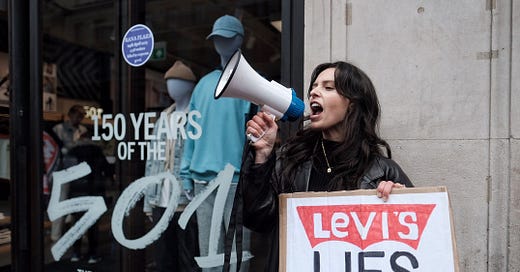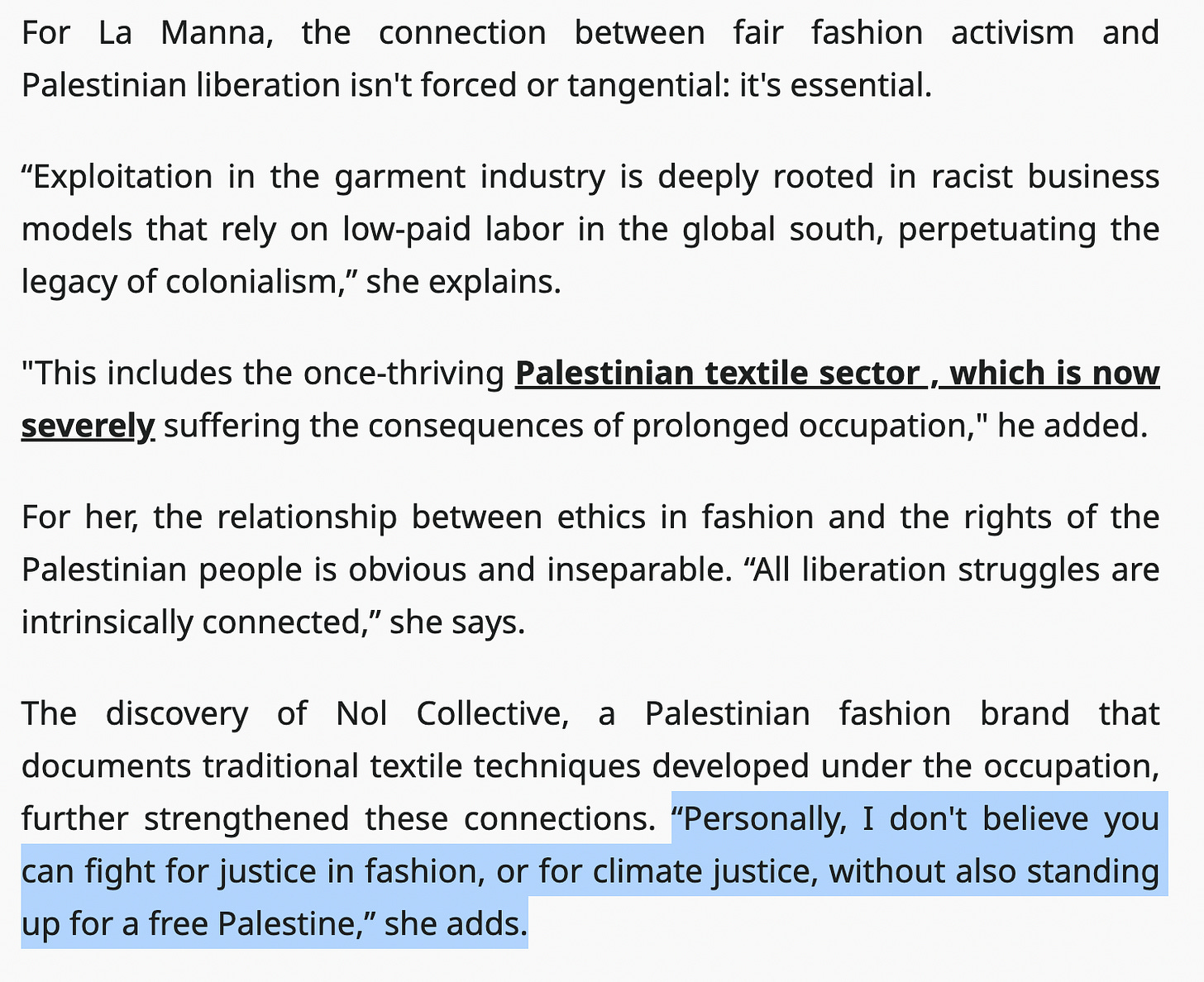Yesterday marked twelve years since the fashion industry’s most tragic event: the collapse of the Rana Plaza factory building in Dhaka, Bangladesh, where as many as 1,138 workers were killed and many more were injured.
Prior to the collapse, the eight-storey building — which housed multiple businesses and garment factories — had been declared unsafe. As large cracks appeared in the structure, many businesses decided to stop work. Right up until the day before the collapse, and in fear for their safety, garment makers pleaded with factory owners not to work. This was met with threats to withhold their wages — not something a worker on poverty pay can afford.
On the morning of 24 April 2013, the entire eight-storey building collapsed within 90 seconds, marking the deadliest recorded event in the clothing sector. This tragedy led to legally binding safety protections for workers, but systemic issues persist.
Despite leading the charge for a fairer industry, garment workers are consistently ignored and undervalued — because if brands listened to their demands and supported worker unions, Big Fashion as we know it would start to unravel. If workers were paid fair, living wages across the board, LVMH’s Bernard Arnault would be knocked off the billionaire top spot, and Zara’s Amancio Ortega would cease to be the richest person in Spain. The system is functioning just as it’s supposed to.
In recent years, garment workers in Bangladesh have faced unprecedented violence for exercising their legal right to protest and organise. In retaliation, clothing factories have filed complaints resulting in over 40,000 warrants — simply for workers exercising their right to organise and protest. On Thursday, various labour rights groups and worker unions signed an open letter to the Bangladeshi government, urging action on wages and labour reforms — with worker participation.
As top-polluting Big Fashion brands profit billions, we must rally behind workers as they fight for a fairer fashion industry.
Brands including Nike, Disney, IKEA, Timberland, and Amazon have still refused to sign The Accord to protect workers. Here’s how we can take action and build global solidarity:
Hold brands accountable for worker exploitation
Support worker-led movements and organising
Demand accountability and transparency from brands, insisting they #SignTheAccord and #SpeakVolumes
Interview
I rarely share interviews or press features, but I’m really proud of this one with TRT that came out this week. I sent it to my mum, who said: “I learnt more about all you do from this than from any other source (even you). It is an excellent piece of journalism.” That feedback feels like reason enough to share it with you, too!
Podcast Recommendation
I am absolutely loving The Nature Of podcast by the brilliant folks at Atmos, hosted by the sublime and serene Willow Defebaugh. As with all of Atmos’ work, it’s meditative, nuanced, and strives to nudge us back into nature’s fold. In this week’s episode — my favourite so far — Willow speaks with biologist Janine Benyus about how we can design our lives with nature, rather than against it. Before making any decision, Janine invites us to ask the question: “Will this be conducive to Life?” Something we can all ask ourselves with each decision we make.
Offline48
I loved
“I let my thoughts stay thoughts instead of turning them into tweets, captions, status updates. And slowly, terrifyingly, I realized I had mistaken visibility for existence.”
Speaking of which… in a few hours, I’ll be logging out of social media for my weekly 48-hour break from the mirror world — a practice I call #Offline48. It’s partly a way of re-learning how to be bored — something I find especially helpful when I’m in a bit of a creative block (like right now). Do join me if it appeals and is accessible to you, and if you have any questions about the challenge, feel free to leave them in the comments.
I’ll be back this time next week with an essay about Big Fashion’s oversupply.
In love and rage,
Venetia






👏🏻